|
Tim and I went to The Ark, an animal rescue and homing centre in Ashbourne, to go to their open day. Him to poke through the second-hand books for his antiquarian bookshop, and me to look at the animals. Just look. And then we met RubyCat. A little five-month-old scrap of tortoiseshell kittenhood. And obviously we fell in love. We weren’t living together at this point, but I was due to go away to the US for work, and so Tim moved in for a couple of weeks to settle her in while I was away. And from that point on, they were inseparable. I always said that the shortest amount of recorded time was between Tim sitting down and Ruby leaping onto his lap Ruby triumphantly outlived the two resident cats, sleek black-and-white Dizzy and black housepanther Satchmo, and strutted around the house proclaiming her couch, her food bowl, her humans After Tim’s sudden death, Ruby was my comfort and my sidekick. She’d never been allowed into the bedroom at night before, but now when I woke up and couldn’t get back to sleep she was curled up on me or at my back, and her purring soothed me. When Dee and her cat and dogs moved in, Ruby lived in my upstairs office during the day, sitting on my desk supervising, and tapping my hand when I didn’t pay her enough attention, and continued to sleep on me at night. Over the last few months she started to lose weight, become wobbly, and sleep even more, but she still ate and purred and jumped onto the bed. When she couldn’t jump onto my lap any more and started to fall over, and when the purr started to dim, I knew I had to be brave for both of us. I took her to the vet for the last time. I stroked her as she slipped away, and Dee held onto me. We will plant a ruby-coloured rose in the garden that Ruby looked out on from the high point of my office windowsill.
RubyCat’s loss is doubly hard, because it feels like I’m losing one of the last living links to Tim. I’m not sure that I believe in an afterlife, but if I do, I know that she will be leaping onto his lap the moment he sits down. Sleep well, little cat.
1 Comment
At the weekend, I read a letter in the Guardian to Pamela Stephenson Connolly entitled I don’t like the way my partner smells and it reminded me how much I loved your smell. I would nuzzle into your neck and breathe you in. Before you moved in with me, when you visited and then went back home, I would fall asleep hugging your pillow. I knew when you were stressed or low because your smell changed. When you died, I lay curled up with you on the bedroom floor taking in as much of your smell as I could. I wore your jumper for days after you died.
After Tim died, I heard the phrase ‘the new normal’ a lot. That I would find my ‘new normal’. That people settled into their ‘new normal’. That the ‘new normal’ kicks in after six months when you realise that it’s all real, or in the second year when all the firsts are over. But what is the new normal?
I think it’s about understanding the changes that we have gone through, accepting what has happened, and looking at how we move forward. This is about how it’s happened for me. It’s not the same for everyone, and for people in the darkest days of grief, the thought of a new normal may be too hard. The new normal: Physical and psychological The trauma of being bereaved, whether it’s suddenly or after a short or long illness, changes us physically and psychologically. Physical symptoms include headaches, chest pain, muscle and joint aches, sleep issues and immune system issues. Psychological changes include brain fog, flashbacks, panic attacks, dissociation and hyperarousal. Trauma also increases the risk of self-harm and suicidal feelings, and of irritable bowel syndrome (IBS), fibromyalgia and chronic pain, and chronic fatigue syndrome (CFS/ME). These changes don’t always last forever – for me, the physical symptoms eased after six months or a year, and the worst of the psychological symptoms after a year or two. It’s important that we look after ourselves, and this isn’t about fluffiness and bubble baths. It’s about genuinely being kind to ourselves, and about taking proper care of our mental and physical health. The new normal: Acceptance The new normal can be about acceptance, and this was significant for me. I accepted that this was my life now. That things were never going to be the same again. For a while it was just about keeping going, and putting one foot in front of the other. The next phase was reclaiming a space and a life for myself – I cleared and redecorated, I went back to university, I started The Widow’s Handbook. I accepted that grieving was a long-term thing. That I wasn’t going to ‘get over it’, or ‘move on’. That it was something that I was going to walk alongside. I also gave myself permission to feel happy again. The new normal: Moving forward Ever since I saw this brilliant TED talk from Nora McInerny, I have talked about ‘moving forward’ not ‘moving on’, because I have taken Tim with me into my new life. While it’s not the life I expected or planned for, it’s the life I have and it’s a life I like. A few months after Tim died, I started to pick myself up and get back on with life. I was still heartbroken, but things started to return to, if not normal, a 'new normal'. I went back to work quite soon because as a freelancer I didn't have a lot of choice, and it gave me a structure to my week. However, I found that at around six or seven months, it felt like I'd gone right back to the very beginning. My mental health took a nose dive, I cried all the time, and I had to pull out of two major work projects.
Looking back at how I felt at six months, I think that was the point that the shock wore off and the reality kicked in. I was angry at him for dying and for leaving me so much to sort out. I was lonely. I had widow's fire but was too broken and felt too guilty to do anything about it. And the combination widow brain, depression and ADHD meant that my concentration was messed up. The only way I could get though it was to go back to my early coping strategies – grounding, writing, talking to people in the grief and widow community and taking care of myself. Things have been quiet here for a while. And it's… complicated. Just as I was settling down for Christmas, I got flu. Thankfully it wasn't as bad as it could have been, as I'd been vaccinated, but it wiped out Christmas and a couple of weeks afterwards.
I've been having a lot of work done on the house. It's very old (potentially one of the oldest in the village) and everything went wrong at once. A ceiling needed repairing. A section of roof needed replacing. Damp needed sorting. Over Christmas, my wife and I decided that it was time to think about buying somewhere together, as she has been living in what was mine and Tim's house. This was a tough decision for me, but it is the right thing to do. It's part of moving forward, and Tim will come to the new house with me. Because he is always there. As part of this process, I'm selling Tim's books, and that's bittersweet. February was the five-year anniversary of Tim's death, but also the day I discovered that Tim's father was dying. And so I've been to another funeral. And finally – I have ADHD. This makes me very easily distracted. And all of the above have been pretty distracting. But I am now back. Thank you for bearing with me. On the day of the anniversary of Tim's death in February, I rang Tim's mum. I always do. But as soon as she answered, I knew that something else was wrong. They were at their local hospital, and Tim's dad was having a scan. It was the end of a story that had started around Christmas, when they noticed that he was losing weight. It was pancreatic cancer. It was terminal, and he didn't want any visitors. A couple of weeks later, I had the phone call to say that this gentle, funny, glorious, intelligent and talented man had died in his sleep.
Yesterday I went to his funeral. A tender, peaceful celebration led by a wonderful celebrant, and a few hours of talking to people I last saw at Tim and my wedding, and Tim's funeral. I spent the evening with a fellow widow, who just gets it. A week before I went to the funeral of my cousin's son – my first cousin once removed – and it was another celebration of a gentle, funny, glorious, intelligent and talented man. I've found that each new grief brings back the old griefs again. Funerals are a time to celebrate the people we lose, but I'd quite like a while without one. Tim was a bookseller and a collector, and when he died the house was full of books, magazines, motor racing programmes, Airfix kits and model cars. I cleared the house and sold the magazines, cars and Airfix kits, but I was left with the books. These are things that were particularly special to him, collected over a lifetime and loved, and each has a memory associated with it that I don't have access to. Where he bought the book. The things he read from it. The people he showed it to. He always said he wanted them to be my income if anything happened, and now the time is right for me to sell his books.
I'm listing the books on eBay, and it's hard. I'm getting flashbacks. Good ones, but still unsettling. Getting a book collection in from another dealer and opening the boxes as if it was Christmas. Wandering round car boot sales. Going to Le Mans and stocking up from the racecourse shop. Hearing his stories as we walked around the paddocks at Goodwood revival. It's good that they are going to people who love them, but it's a bittersweet process. Five years ago this morning, Tim took his last breath. I've written about his sudden death, packing his bag for the last time, how life carries on when yours has stopped, coping with clearing the house, dealing with the What Ifs, giving myself permission to feel happy, and about how my life changed.
As always, I found the run up to the anniversary to be worse than the anniversary itself, but this year it has felt different. I have moved forward – I am still working as a freelance medical writer, but I am trying (though not always succeeding) to spend more time writing creatively. I have let part of what was his bookshop to a small local business selling stoves and fireplaces. I am selling his book collection to be able to invest money into a new house. But I haven't moved on –I am keeping some books and other things to remember him by, and he travels with me. After all, he taught me that I deserve love. I have a new love, Dee, and we married last summer. We are building new memories. We are planning to sell this house and buy a new house together to create a place that is ours. This will be a wrench as it was mine and Tim's home and workplace, but it is the right thing to do. Being with Dee hasn't displaced my old love. Tim is still in my heart, I cherish his memory and the memories we made together. Grief is still there. It is something that we as widows walk alongside. But I now can see it as a quiet companion rather than a raw and bleeding wound. A few weeks before Tim died, we were on the way back from a funeral of a friend who died suddenly and unexpectedly in her sleep. She was only a few years older than us. Ironically, we had a 'who would go first' conversation. Tim said that he was worried about me coping if he went first, as my mental health wasn't that good at the time. I often wonder how he would have coped alone.
Tim died suddenly. We'd been out the night before and there were no signs of anything wrong. And then in the early hours of the next morning, his world and my world stopped in a breath, a heartbeat.
That day The day is a blur. A 999 call, paramedics. Friends coming over to be with me. Calling Tim's parents – the hardest thing I have ever had to do in my life. Calling my family, our friends. Breaking the news over and over again. It never sounding real, no matter how many times I said it. Tea. So much tea. My brain in a fog. Wandering around the village in a daze. Wonderful friends wrapping me around with love. I was in shock. Crawling into bed alone, the bed remade with fresh sheets by a friend. Needing to sleep there even though I didn't think I would sleep, because I knew that if I didn't spend the night there I might never sleep in our room, our bed, again. Messaging friends during the night just to know that someone was there. The next few days The beginning of the sadmin. Talking to the hospital to get the results of the post-mortem (heart failure as a result of type 2 diabetes). Things being delayed because of the Beast from the East. Talking to the funeral director, the registrar, the vicar to arrange the funeral. Not having much of an idea of what he wanted in way of a funeral because it had been so sudden. And the days after Struggling with all the sadmin because we had no plans, no lists. He was only 50. We thought we had time. The shock and the numbness wearing off and it becoming all so very real. Living after a sudden death The suddenness and trauma of Tim's death, and having to do CPR, left me with dissociation, flashbacks, intrusive memories and nightmares, all symptoms of post-traumatic stress disorder (PTSD). I spent time with an amazing integrative psychotherapist who helped me to move forward from these. One of the hardest things with a sudden death is not being able to say goodbye. That haunted me for a long time. I had a session with my psychotherapist who was able to talk me through it. I now have a 'memory' of hugging him goodbye and him walking down the hall to the front door, jingling his keys in his pocket.
|
AuthorI was widowed at 50 when Tim, who I expected would be my happy-ever-after following a marriage break-up, died suddenly from heart failure linked to his type 2 diabetes. Though we'd known each other since our early 20s, we'd been married less than ten years. Archives
July 2024
Categories
All
|

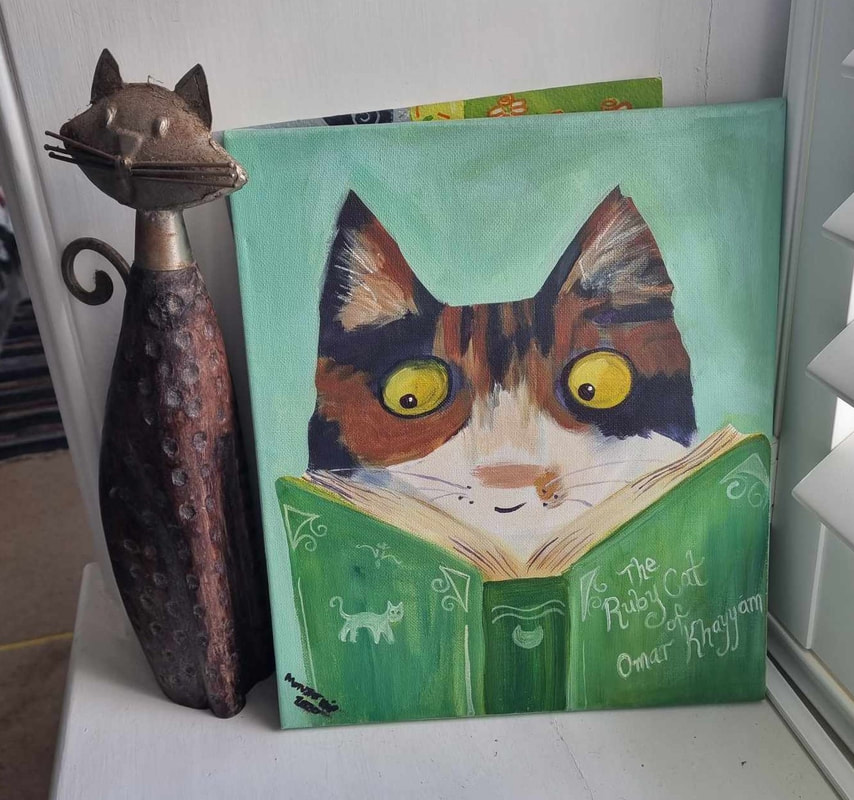
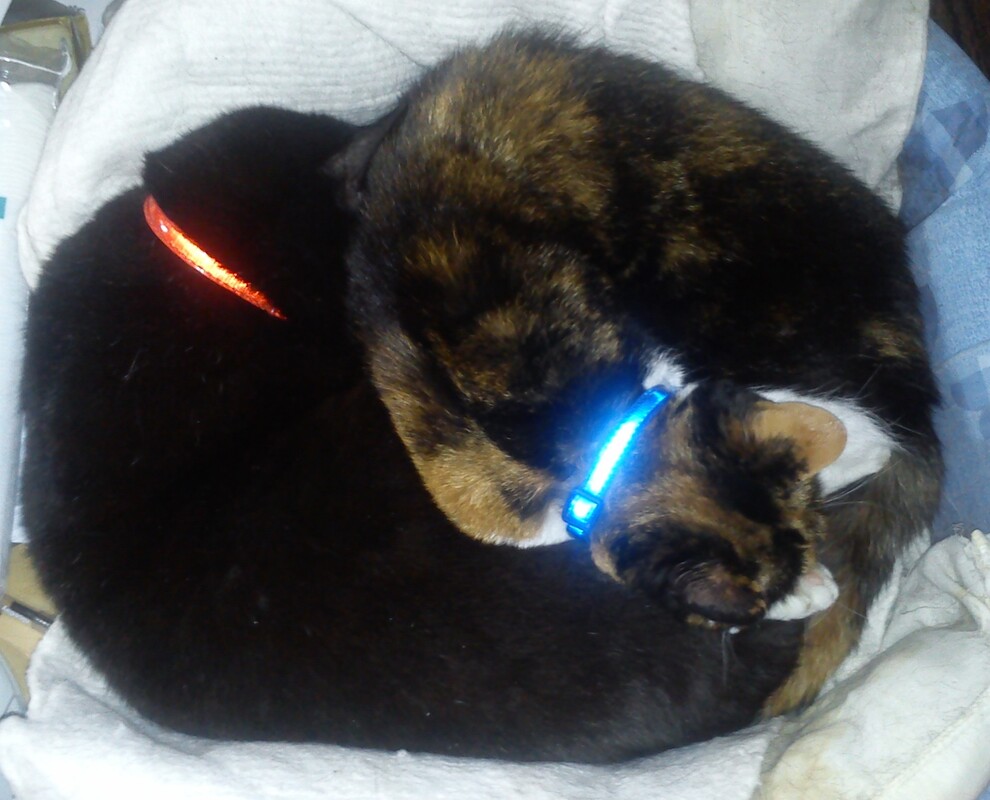
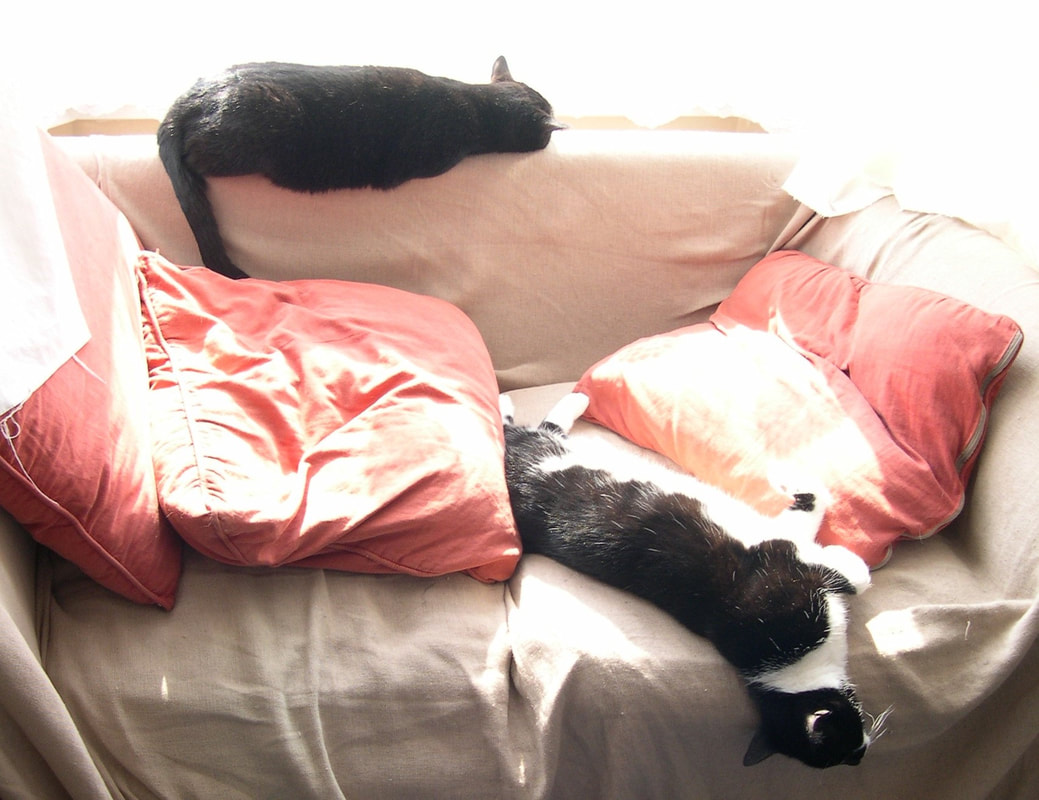
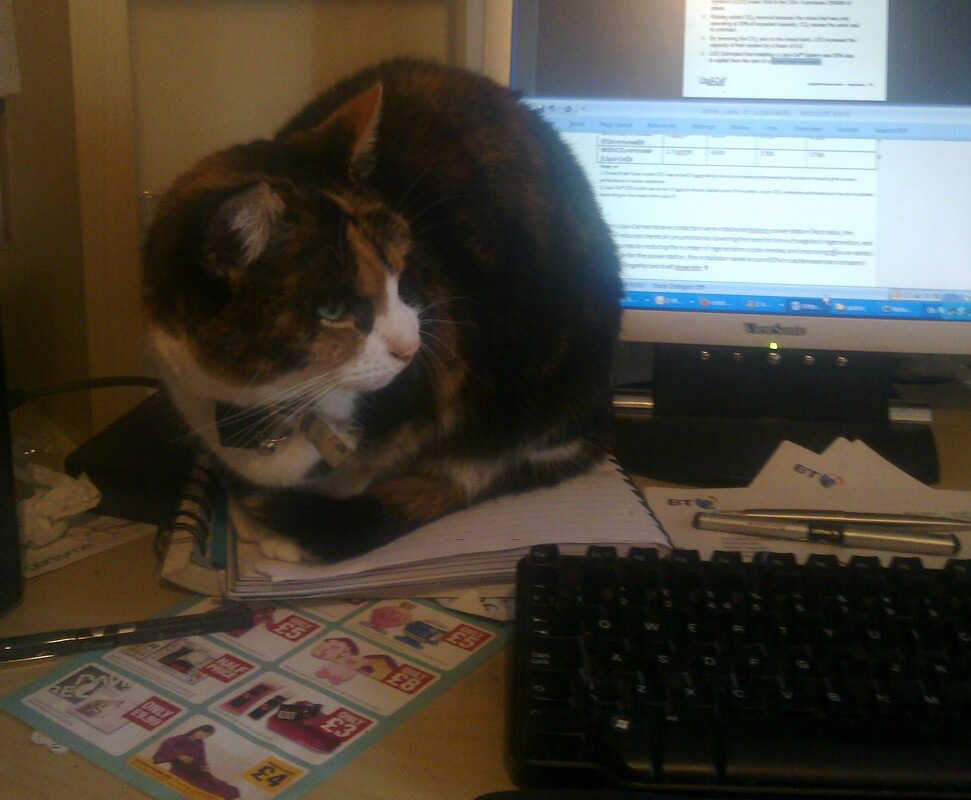
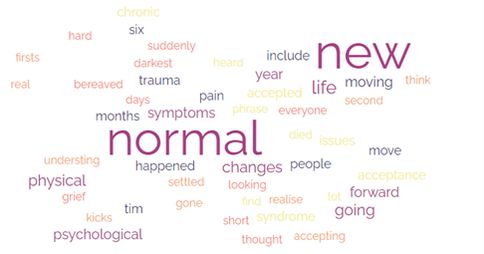


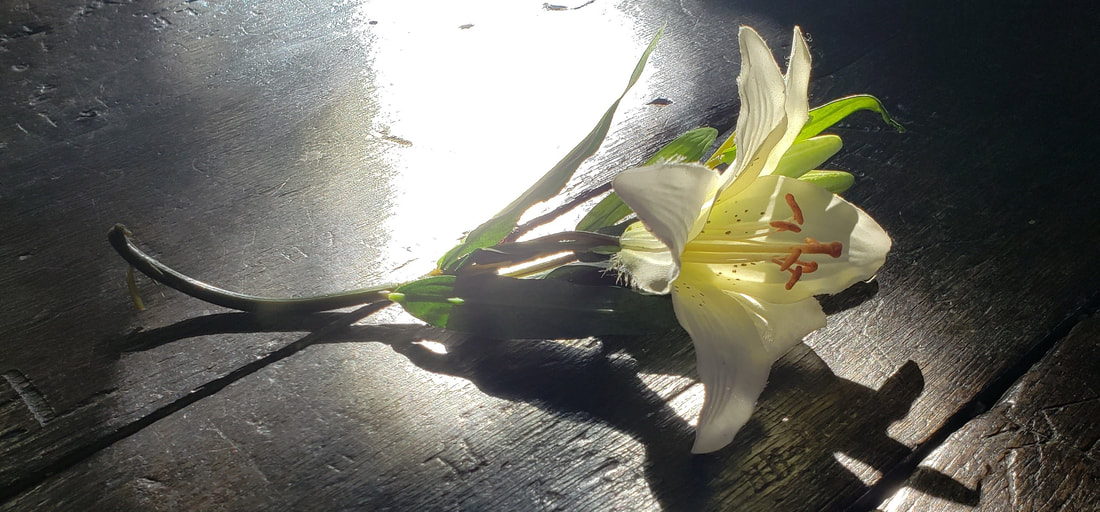

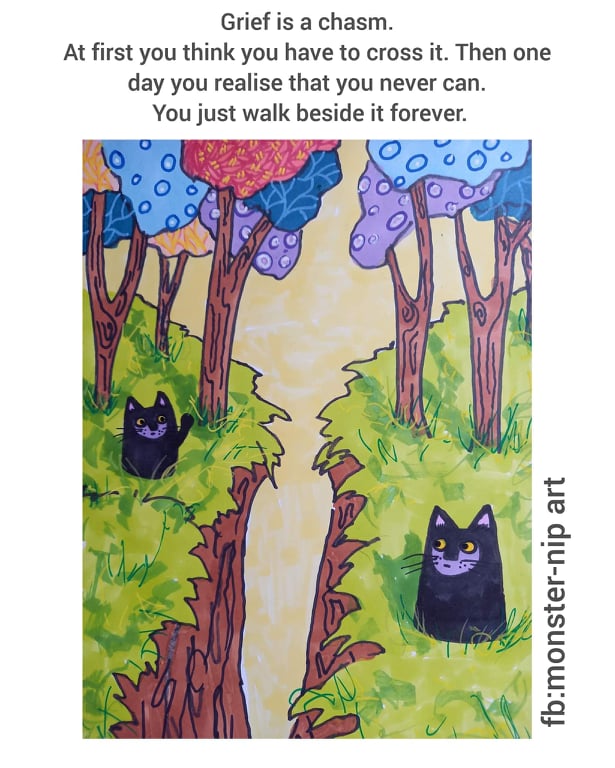


 RSS Feed
RSS Feed